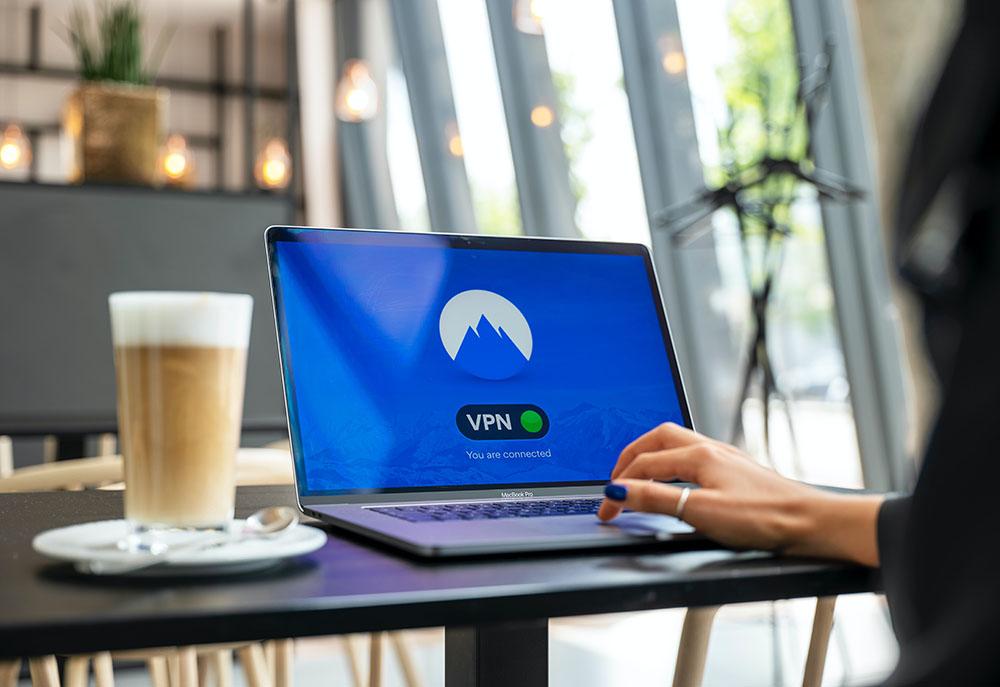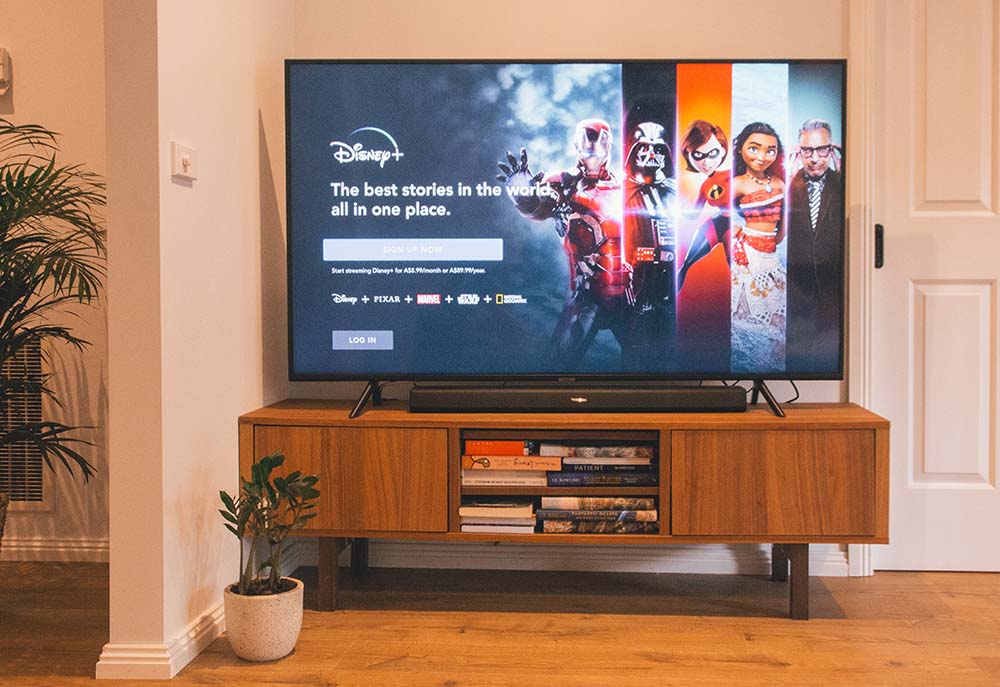In the vast realm of the digital universe, a Virtual Private Network, commonly known as a VPN, stands as your knight in shining armor. Have you ever found yourself wondering about those pop-ups suggesting Netflix shows unavailable in your region? Or pondered why certain websites remain inaccessible at your workplace? Enter the world of VPNs. This VPN for beginners introductory content will enlighten you with everything you should know about Virtual Private Network
Once, VPNs were the hidden tools of companies, providing remote employees a secure passage to company databases. But today, as the demand for online privacy grows and geo-restrictions make life harder for users, VPNs have become tools that many use every day. This rise isn’t just about getting access to entertainment or getting around digital blocks; it’s about reclaiming one’s digital footprint.
With the “VPN Guide for 2023,” we try to take the mystery out of VPNs by making the tech-speak easy for people who are just starting out. Whether you are just dipping your toes into VPNs or are looking for more advanced information, our guide will give you a good mix of information.
Dive into our “VPN Guide” to learn everything you need to know about VPNs, including how they work, their many benefits, and how to set one up. We bust some of the most common myths about VPNs and explain when they can be your digital savior. As VPNs do their job by securing your data and hiding your IP address, they increase your online privacy, get around geographical restrictions, and keep you safe on suspicious networks. A little slowing down of your Internet speed? A fair trade-off for a safe place to go online.

Table of Contents
What is a VPN?
Unveiling the Mystique with Our VPN Guide
Imagine walking through a crowded market wearing an invisibility cloak, where you can see everyone but no one can see you. In essence, this resemblance presents a picture of what a Virtual Private Network, or VPN, can achieve for you in the digital marketplace that is the internet.
At the heart of it, “VPN” stands for Virtual Private Network. It’s a word you might have heard in internet talks or when talking about privacy. So, let’s talk about the subject in our VPN Guide.
Traditional Internet Connectivity:
To make things easier, let’s look at what usually happens when you browse the web. Whether it’s a smartphone or a PC, your device first connects to a local network and then to the internet. The rest of the internet can then be reached through your Internet Service Provider (ISP). This direct method is easy, but it shows everything you do online, from going to websites to sending data.
Stepping into the VPN Veil:
Now, imagine rerouting this connection. With a VPN, instead of taking a direct route, your data is encrypted and sent on a more discreet pathway. This pathway leads to a server managed by your VPN provider. After reaching this server, the data is decrypted and dispatched to its original destination on the internet. When data returns, it retraces this secure path, ensuring the whole journey is shielded from unsolicited gazes.
Why Should This Matter?
Encryption: By making your data look like noise to anyone who looks at it, VPN makes sure that only the person you want to get the message can understand it.
Anonymity: Your original IP address, a digital tag indicating your location, is swapped with the VPN server’s address. This masks your true whereabouts and identity.
Barrier Breaker: Content on the internet is often restricted depending on geographic location. You may literally teleport via a VPN, giving access to such geo-restricted content.
With the increasing calls for digital privacy, understanding VPNs becomes not just a tech whim but a necessity. As we journey through this VPN Guide, you’ll learn that VPNs don’t just ensure privacy—they offer a freedom that is becoming increasingly rare in our interconnected era.
Unlock the Internet: Bypassing Restrictions
In today’s hyper-connected era, the internet offers a world of possibilities, but there’s a catch. Many times, this vast digital expanse isn’t as open as we’d like it to be. Restrictions, much like hidden walls in a maze, can often stand in your way. Our VPN Guide is here to give you the map to bypass these walls and truly unlock the internet.
Why Does the Digital Door Lock?
Let’s decipher the main reasons the digital realm isn’t always the open field we perceive:
Network Barriers: Think of establishments like schools, colleges, or workplaces. The IT department might have restrictions in place, keeping you from accessing social media or certain websites deemed “unproductive” or “inappropriate.”
Governmental Curtains: Some regions have stringent regulations about what their citizens can view. For instance, certain countries might keep platforms like Facebook or Twitter under wraps due to socio-political concerns.
Geo-fencing: Ever tried watching a particular show on Netflix while traveling, only to find it’s unavailable? That’s geo-blocking in action. Content providers limit what you can watch based on your location to comply with licensing agreements.
Swinging the Digital Doors Wide Open with VPN:
Enter the power of the VPN. How, you ask? Let’s dive deeper with our VPN Guide.
Camouflaging your IP: The primary weapon in a VPN’s arsenal is the ability to change your IP address. Websites gauge your location through this address. By masking your real IP with one from another region, you’re virtually teleporting, letting you access content otherwise restricted in your location.
Tunneling through Restrictions: Be it school, work, or a country-wide ban, a VPN can create a secure tunnel. This tunnel allows your data to pass through these restrictions, almost like a secret underground passage that escapes the notice of guards above.
Read also: Avast Password Manager Not Working Issue: 2023 Ultimate Fix
Avoiding Geo-block Detection: While many content providers have grown adept at detecting and blocking many VPNs, some advanced VPN services still manage to sneak past these detectors. It’s essential to choose wisely and stay updated with the latest in VPN technology.
The internet should ideally be a place of boundless exploration. Restrictions, while sometimes necessary, can often curb genuine requirements or curiosities. Fortunately, with tools like VPNs and resources like our VPN Guide, there’s a way to reclaim that boundless digital horizon. Just remember to navigate responsibly and respect content creators’ rights.
The Importance of VPNs in 2023: A Deep Dive with Our VPN Guide
In the year 2023, our lives will be even more centered on the online world. There will be a lot of digital change. With the rise of cyber-tech comes the harsh truth of digital risks. The current user wants an online experience that is easy and safe. Our VPN Guide shows why VPNs aren’t a luxury in 2023 but a must-have.
Safeguarding in the Age of Public Wi-Fi:
Since more and more bars, airports, and public places offer free Wi-Fi, it’s hard to say no to staying linked. However, cybercriminals often use these networks to do malicious activity. Using a VPN protects your data by encrypting it. This turns these digital games into castles that keep out hackers who might try to break in.
The Great Digital Escape – Geo-Locked Content:
Streaming platforms, despite their global appeal, often come with regional locks. Want to binge that exclusive European show while in Asia? A VPN works like a digital passport, letting you jump geographical fences, and ensuring your content consumption remains boundless.
Your Digital Cloak – True Online Anonymity:
As our VPN Guide suggests, imagine browsing with an invisibility cloak, where not even your ISP can track your moves. That’s the sanctuary a VPN provides. With rising concerns about data selling and profile building, a VPN is your best bet against the prying eyes of ISPs, advertisers, and potentially intrusive governments.
The Digital Work Fortress – Remote Work Security:
The remote work revolution is here to stay. Yet, accessing company databases from home or a quaint cafe can expose sensitive data. VPNs act like a secure tunnel, ensuring data shared between you and your company remains confidential and impenetrable.
Bypassing the Digital Barriers – Overcoming Censorship:
Certain regions impose digital blindfolds, restricting users from accessing global content. Whether it’s social platforms or news websites, a VPN grants you the freedom of information, ensuring you’re not shackled by regional digital dictates.
Game On! – Enhanced Gaming Experiences:
Our Quick VPN Guide finds that online gaming isn’t just about fun; it’s about fair play. VPNs can level the playing field by reducing lags or bypassing regional restrictions on specific games or updates, ensuring every game is a global championship.
Transferring with Trust – Secure File Sharing:
In the age of collaboration, sharing files shouldn’t be fraught with danger. Whether it’s a groundbreaking business presentation or a personal project, VPNs ensure that your files traverse the online realm with an armored escort.
VPNs and Gaming: Mastering the Virtual Battlefield with our VPN Guide
The digital landscape of gaming has evolved tremendously, and gamers seek every edge to conquer this competitive realm. In such an environment, lag can mean the difference between victory and defeat. Our VPN Guide uncovers how VPNs play a crucial role in ensuring seamless, uninterrupted gameplay, particularly in adrenaline-charged arenas like Warzone.
Guarding Against Digital Sabotage:
Gamers, in the heat of competition, often find themselves on the receiving end of malicious DDoS attacks from rivals. Such attacks can disrupt gameplay, making one vulnerable to in-game losses. A VPN acts as a shield, masking your real IP address, thereby making you a challenging target for vengeful opponents. Safe gameplay ensures that your winning streak remains unbroken.
Unlocking the Gaming Universe:
Games, despite their universal appeal, sometimes are confined to certain regions. Picture this: a much-awaited title, accessible only in Europe while you’re based in Asia. Our VPN Guide highlights how, with the magic of VPNs, geographical barriers vanish. By altering your virtual location, you gain the power to access and play any game from any corner of the globe.
Lag? What’s That?:
For gamers, especially in high-octane arenas like Warzone, lag isn’t just an inconvenience; it’s the enemy. A split second of delay can lead to a missed shot or a failed strategy. VPNs, especially premium ones, come equipped with state-of-the-art tunneling protocols that streamline data flow. This optimization means reduced lag, ensuring that your gameplay remains as smooth as your strategies.
Setting Up Your Gaming VPN:
Venturing into the world of VPNs might seem daunting, but our VPN Guide offers a user-friendly breakdown. Typically, once you’ve selected your preferred VPN provider, you’d install their application, choose a server (ideally one closest to the game server), and voila! You’re all set to dive into lag-free gaming sessions.
Setting Up Your VPN: Your Complete Guide to Safe Browsing
Diving into the world of VPNs might initially seem daunting, but with the right steps and our comprehensive VPN Guide, you’ll be well on your way to a safer, unrestricted internet experience in no time. Here’s a thorough step-by-step guide to setting up your VPN:
On a Computer:
Pick the Right VPN: Begin your journey by choosing a reliable VPN provider. Our VPN Guide can help narrow down options based on your needs.
Registration: Once you’ve made your choice, visit the VPN’s official website and register for a plan that resonates with your requirements.
Download and Installation: Obtain the VPN application from the provider’s official site or respective app store and adhere to the provided installation prompts.
Setup and Personalization: Upon opening the VPN software, log in with your credentials and navigate any setup instructions that appear.
Connect: Finally, select a preferred server location and initiate the connection. With that, your computer is VPN-protected!
On a Smartphone:
Choose a VPN: As with computers, your first task is to decide on a VPN provider, utilizing resources like our VPN Guide for guidance.
Sign Up: Opt for a suitable plan on the VPN’s webpage.
Download and Install: Fetch the VPN application from your smartphone’s app store (iOS App Store or Google Play for Android).
Initialize: Launch the application, enter your login details, and adhere to any setup guidelines.
Engage: Simply pick a server and establish the connection. Your mobile device now enjoys VPN protection!
For Routers:
Select a VPN: Begin by confirming that your chosen VPN offers router configuration support.
Register: Opt for a membership plan via the VPN’s site.
Router Configuration: Access the administrative page of your router and input the VPN settings. This typically entails entering VPN server information along with your login credentials. For precise instructions, resort to our VPN Guide or the provider’s tutorial.
Establish Connection: Once configured, all gadgets linked to your router will automatically benefit from the VPN shield.
Potential Hiccups:
Like all technologies, VPNs can sometimes present challenges. Familiarizing yourself with common issues and their solutions can save the day. Here are a few:
Connection Drops: Occasionally, VPNs might disconnect. In such cases, try switching servers or checking your internet connection.
Slow Speeds: VPNs can occasionally reduce browsing speeds. Opt for a server closer to your location or experiment with different VPN protocols.
Blocked Websites: Some platforms may block VPN traffic. Try using different server locations or switching between tunneling protocols.
Myths vs. Realities of VPNs: Cutting Through the Noise with our VPN Guide
In the vast digital realm, information is abundant, but not all of it is trustworthy. VPNs, as tools that promise to secure our online presence, are often shrouded in myths and misconceptions. Thankfully, our VPN Guide is here to set the record straight and separate fiction from fact.
Myth 1: VPNs guarantee 100% anonymity online.
Reality: While VPNs do a stellar job of masking your IP address and encrypting your online activities, absolute online anonymity is challenging. Factors like browser cookies, malware, or even some user behaviors can still reveal personal data. A VPN enhances privacy, but it’s one layer of a multi-faceted security approach.
Myth 2: Using a VPN will always slow down your internet speed.
Reality: With our VPN Guide, you’ll learn that while encryption processes can add minimal lag, a top-tier VPN can actually improve connection speeds in certain cases, especially if your ISP is throttling your bandwidth.
Myth 3: VPNs are only for those involved in shady online activities.
Reality: VPNs cater to a wide range of users. From journalists working in politically sensitive areas to everyday users wanting to stream geographically restricted content or secure their data on public Wi-Fi, VPNs serve numerous legitimate purposes.
Myth 4: All VPNs are the same.
Reality: Just as cars differ in quality and functionality, so do VPNs. Our VPN Guide emphasizes the importance of researching before committing. Factors like encryption strength, server locations, and logging policies can greatly differ among providers.
Myth 5: VPNs can shield you from all cyber threats.
Reality: While VPNs encrypt your data traffic, they don’t protect against all cyber threats. Malware, phishing scams, and other malicious attacks can still be a risk. It’s essential to combine VPN usage with other security measures like reliable antivirus software.
Myth 6: Free VPNs are just as effective as paid ones.
Reality: As explored in our VPN Guide, you often get what you pay for. Free VPNs might come with limitations on speed, data, server locations, or even selling your data to third parties for advertising. It’s crucial to understand the business model of the VPN you’re using.
Myth 7: VPNs are illegal and will get you in trouble.
Reality: In many countries, VPN usage is entirely legal and is considered a tool for online privacy. However, it’s the activity conducted while using the VPN that matters. Always abide by the laws of your country, and be aware that some regions do restrict or ban VPN usage.
As the digital landscape continues to evolve, so will the myths surrounding tools that promise to protect us. Our VPN Guide is here to ensure you always have the facts at your fingertips, ensuring a safe and informed online journey.
To Pay or Not to Pay: VPN Edition – Unraveling the Mystery with our VPN Guide
Diving deep into the vast realm of VPNs, one quickly realizes the divergence between free and paid services. Our VPN Guide steers you through the murky waters, ensuring you’re equipped with the insights to make an informed decision.
Free VPNs: Unveiling the Layers:
At Zero Cost: The most obvious advantage. Suitable for those dipping their toes in VPN waters for the first time.
Simplicity at its Best: User-friendly and accessible, even to the technologically challenged.
Hidden Realities: Ever pondered how such services sustain themselves without charging a dime? There’s always a catch. Your data might be the currency they deal in, traded with advertisers or other third parties.
Uninvited Guests: Expect a barrage of ads, potentially hindering a seamless online experience.
Restrictions Await: Limited server access, snail-paced speeds, and data caps might impede your digital escapades.
Paid VPNs: Shining a Light on the Perks:
Fortified Security: Paying ensures you’re accessing top-tier encryption standards. This is a realm where quality often correlates with cost.
Broadening Horizons: Extensive server selections, stellar speeds, and no data restrictions. The world is your digital oyster.
Your Data Stays Yours: Commitment to stringent no-log policies safeguards your data.
Add-ons Galore: Kill switches, multi-device connectivity, and enhanced support often accompany the package.
Reliable Assistance: Troubles? Premium VPNs typically offer round-the-clock support.
Tread with Caution:
Running a VPN isn’t a charitable endeavor. Infrastructure, server maintenance, top-notch security protocols, and staff salaries accumulate expenses. When not reflected in a subscription fee, one must wonder where compensations are made. As our VPN Guide would advise, it’s prudent to be wary of “free” offerings that seem too generous. While there are exceptions, with a few free VPNs maintaining commendable standards, many tread the line between beneficial and potentially harmful.
While free VPNs can serve as a starter pack for the uninitiated, for lasting and trustworthy protection, investing in a premium VPN is a wise decision. Think of it as an investment in your online privacy and security. Our VPN Guide’s mantra? Quality, trust, and transparency should always trump a zero-price tag. Navigate wisely in the vast VPN seas!
VPN For Streaming Services
Unlock a world of seamless streaming with a VPN. Enjoy unrestricted access to your favorite shows and movies by bypassing geo-restrictions. Whether it’s regional content or exclusive libraries, a VPN enhances your streaming experience, ensuring privacy and security. Say goodbye to limitations and hello to a borderless entertainment journey. Stream freely with a VPN today
Finding Your Ideal VPN in 2023: A Comprehensive VPN Guide
As the digital world continues to evolve, VPNs have become essential tools for internet users seeking privacy and security. Here’s our detailed analysis, including the pros and cons of five prominent VPNs in 2023:

1. ExpressVPN
| Pros: | Cons: |
|---|---|
| Speed: Known for offering one of the fastest VPN connections in the industry. | Cost: Generally higher priced than its competitors, although many believe the quality justifies the cost. |
| Server Network: A vast global reach ensuring accessibility from virtually any location. | Limited Simultaneous Connections: Allows fewer simultaneous connections in comparison to some rivals. |
| Ease of Use: Intuitive user interface suitable for beginners and experts alike. |

2. CyberGhost
| Pros: | Cons: |
|---|---|
| User-Friendly: Designed with a user-centric approach, making VPN access simple and straightforward. | Speed Variability: Speeds can be inconsistent based on server location and time. |
| Specialized Servers: Offers servers optimized for specific activities, like streaming or torrenting. | Limited Advanced Features: This may not cater to tech-savvy users looking for granular control over their VPN experience. |
| 45-day Money-back Guarantee: One of the longest trial periods in the industry. |

3. Surfshark
| Pros: | Cons: |
|---|---|
| Budget-Friendly: Offers competitive prices without compromising on essential features. | Younger Network: Being relatively newer, its server network might not be as expansive or tested as older competitors. |
| Unlimited Connections: Allows unlimited simultaneous connections, ideal for larger households. | Occasional Streaming Hiccups: Might require multiple tries to bypass streaming geo-restrictions. |
| CleanWeb Feature: Built-in tool to block ads, trackers, and malicious websites. |

4. Private Internet Access (PIA)
| Pros: | Cons: |
|---|---|
| Customization: Offers an array of settings and tweaks for those who like to customize their VPN experience. | UI Challenges: Its application interface, especially on desktop, can be a bit more complex for beginners. |
| Strong Encryption: Utilizes high-end encryption standards for top-notch security. | Streaming Limitations: Might not always unblock all geo-restricted content from streaming platforms. |
| Large Server Network: Boasts a wide array of servers across various countries. |

5. NordVPN
| Pros: | Cons: |
|---|---|
| Specialty Servers: Offers unique server types like double VPN, Onion Over VPN, and P2P servers. | User Interface: While generally user-friendly, some features and settings might seem convoluted to new users. |
| Privacy: Strict no-logs policy and based in Panama – a privacy-friendly jurisdiction. | Price Fluctuations: Pricing plans can be confusing, with frequent changes and promotions. |
| CyberSec Feature: Blocks ads and potential online threats. |
Selecting the right VPN in 2023 is a matter of understanding one’s specific needs and preferences. While each of the VPNs listed above has its strengths and weaknesses, they all provide a layer of privacy and security for online users. Use this VPN Guide as a reference point to find your ideal VPN match.
Wrapping Up: Embracing VPNs for a Secure, Unrestricted Digital Journey
As we draw our comprehensive VPN Guide to a close, it’s essential to revisit the core essence of why VPNs have become a vital tool in our interconnected digital era. Every click, every search, and every online transaction carries with it a series of risks and vulnerabilities. Whether it’s potential surveillance, unwanted data collection, or the ever-annoying geo-restrictions, the modern internet user confronts numerous digital barriers daily.
VPNs, or Virtual Private Networks, emerge as our trusted guardians in this intricate web of the internet. They not only cloak our digital identities, ensuring that our private data remains precisely that – private, but they also pave the way for a boundary-less internet experience, free from the chains of geo-blocks and regional content restrictions.
However, like any tool, a VPN’s efficacy lies in its proper selection and utilization. With myriad options available, it’s paramount to make an informed choice that aligns with one’s specific needs and online behaviors. Our VPN Guide has aimed to equip you with the knowledge and insights necessary for this purpose.
Embracing a VPN means embracing a vision of the internet as it was originally intended: a global, free, and open space for sharing, exploration, and connection. So, as you venture forward into the digital realm, carry with you the wisdom of the importance of online security and the empowerment a VPN can offer. Here’s to a secure, unrestricted, and enlightened digital journey ahead!



